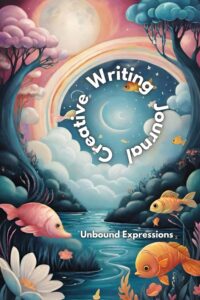Are you a true chud or just a fake chud? As the concept of “chud” gains popularity, more and more people are claiming to be chuds. But what does it truly mean to be a chud? Is it just about being an individual or is there more to it?
Are You a True Chud or Just Pretending?
Embarking on the journey of a chud involves more than just wearing the title, it’s about fully integrating the essence of individualism, self-reliance, and steadfast personal accountability into your life. A genuine chud is someone whose actions reflect an unwavering commitment to these principles, demonstrating a lifestyle that is independent of societal influences and external approval. This individual navigates through life guided by their own moral compass, making choices that are true to their personal convictions, even in the face of challenge or isolation.
On the contrary, those masquerading as chuds might superficially adopt the terminology without a deep-rooted understanding or application of what it genuinely means. This surface-level identification often reveals itself through behaviors that contradict the very core of chud philosophy. For instance, if your actions are heavily influenced by the need for acceptance from others, if you habitually defer to the opinions or solutions of those around you rather than trusting your own instincts, or if you mold your persona to fit into societal molds, then your claim to the chud identity might require reevaluation.
Moreover, a propensity to point fingers at external circumstances or individuals for personal setbacks rather than embracing responsibility could further signify a misalignment with the true ethos of being a chud. It’s this introspection and honest assessment of one’s motivations and actions that distinguish a true chud from someone who is merely adopting the label for its aesthetic or perceived standing.
The Core Values of a True Chud
At the heart of a true chud’s philosophy lie the principles of individualism, self-reliance, and personal responsibility. These core values form the foundation of a chud’s identity, influencing every decision and action. Individualism is cherished as the cornerstone, emphasizing the importance of self-expression and the uniqueness of each individual. A true chud respects and celebrates their own individuality and that of others, rejecting the idea of conforming to the collective norms and expectations imposed by society.
Self-reliance is equally paramount in the life of a chud. It’s about having the confidence and capability to depend on one’s own abilities and resources instead of seeking support or approval from external entities. This value encourages chuds to forge their own paths, trust in their own judgments, and cultivate a strong sense of independence. The belief in self-sufficiency doesn’t negate the importance of community but underscores the principle of contributing as self-empowered individuals rather than being dependent followers.
Personal responsibility is the third pillar, advocating for a life where one takes ownership of their actions and their consequences. True chuds embrace accountability for their successes and failures alike, viewing challenges as opportunities for growth and learning. This value fosters integrity and honesty, guiding chuds to live authentic lives aligned with their beliefs and values. Together, these core values form the ethos of a true chud, guiding them in leading lives marked by authenticity, courage, and a deep respect for the individual’s capacity to shape their own destiny.
Signs You Might Be a Fake Chud
Identifying whether you’re embodying a counterfeit version of chudhood involves introspection into your behaviors and motivations. Key indicators include a heavy reliance on the opinions and approval of others, which stands in stark contrast to the chud principle of valuing one’s own judgment and direction. If you notice that your decisions are more often than not swayed by the fear of standing out or going against the grain, this could be a telltale sign of veering away from genuine chud philosophy.
Additionally, a lack of personal accountability is another significant marker. If, when confronted with challenges or setbacks, your first instinct is to look outward, blaming circumstances or other people, rather than inward to assess your own contributions to the situation, this reflects a deviation from the chud ethos of owning one’s actions and their outcomes. This avoidance of self-accountability not only undermines the principle of personal responsibility but also impedes personal growth and authenticity.
Engaging in superficial behaviors that mimic chud qualities without a foundational understanding or genuine commitment to chud values is another red flag. This includes adopting the aesthetics or vernacular associated with chud culture as a means of fitting into a perceived trend, rather than as an expression of deeply held beliefs. Such actions reveal a disconnect between outward identity and inner conviction, suggesting a superficial attachment to the chud label rather than a true embodiment of its essence.

> Check Current Book Prices <
The Chud Test: A Self-Reflection
To embark on the chud test, initiate a journey of deep introspection. This process begins with examining your adherence to the fundamental principles that define a true chud: individualism, self-reliance, and personal responsibility. Consider the decisions you’ve made and the paths you’ve chosen, do they reflect a genuine commitment to these values, or are they influenced by external validation and societal norms? Reflect on situations where you’ve faced challenges or setbacks. In those moments, did you look inward, taking ownership of your role and seeking lessons to be learned, or did your gaze turn outward, placing blame on circumstances beyond your control?
The chud test is not about passing or failing but about revealing the alignment between your professed beliefs and your lived experiences. It prompts you to question the depth of your conviction in the chud philosophy. Are your actions a true representation of your beliefs, or are they a façade, a superficial layer donned to fit a particular image or trend? This self-examination is crucial in uncovering the authenticity of your chud identity.
Engage with these reflections honestly, without self-deception or rationalization. This test serves as a mirror, offering insights into the congruence between your inner values and external life. It’s a step toward recognizing where you truly stand on the spectrum of chud authenticity and understanding the steps you may need to take to align more closely with the chud ethos.



Embracing Your Chud Identity, True or Fake
Discovering your status as a true or fake chud isn’t the end of your journey, it’s a pivotal point that defines your path forward. Embracing your identity, regardless of where you fall on the spectrum, is about acknowledging your current state while considering the potential for growth and transformation. For those who resonate with the true essence of a chud, it’s a reaffirmation of your dedication to living authentically according to the principles of individualism, self-reliance, and personal responsibility. This acknowledgment acts as a catalyst, propelling you to deepen your commitment to these values, ensuring that your actions continue to reflect your core beliefs consistently.
Conversely, recognizing aspects of a fake chud within yourself isn’t an indictment but an invitation, an opportunity to introspect and recalibrate. It’s about asking yourself crucial questions about the values you hold dear and the life you wish to lead. This realization is the first step towards genuine transformation, urging you to align more closely with the values that chuds hold in esteem. It’s a chance to strip away the layers of external influence and societal expectations, returning to the bedrock of your individuality, and reshaping your life in a manner that honors your true self.
In both cases, embracing your chud identity, whether true or in need of realignment, signifies a commitment to personal growth and authenticity. It’s a journey of continuous self-discovery, reflection, and action, a commitment to being unapologetically you, in the most genuine sense.
How to Become a More Authentic Chud
Transitioning toward a more authentic chud identity begins with a sincere evaluation of your current alignment with the core chud principles: individualism, self-reliance, and personal responsibility. This introspective journey is crucial for identifying discrepancies between your professed values and your actual life choices. Focus on instances where external pressures may have led you away from your true self, and commit to making decisions that resonate more deeply with your personal beliefs and convictions.
Enhance your journey by actively seeking out experiences that challenge you to rely on your own judgment and resources, thereby fostering a stronger sense of independence and self-confidence. This might involve stepping out of your comfort zone, taking on new responsibilities, or even embracing solitude to better understand your own thoughts and motivations.
Building a community of like-minded individuals can also provide valuable support and inspiration. Engage with others who live by chud values, sharing experiences and learning from one another. This communal interaction can reinforce your commitment to individualism by celebrating the diversity within your collective uniqueness.
Lastly, remember that becoming a more authentic chud is a continuous process of growth and self-reflection. Embrace each day as an opportunity to live more aligned with the values of individualism, self-reliance, and personal responsibility, making incremental changes that collectively forge a more authentic chud identity.




















